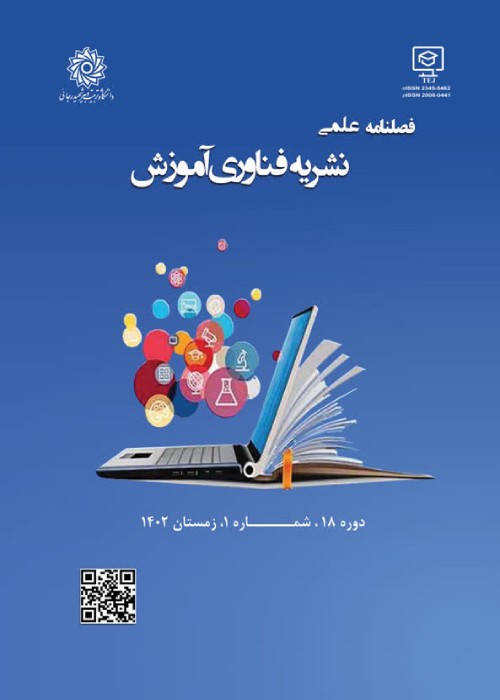Studying the effectiveness of using electronic content of mathematics course on self-regulatory learning and academic achievement
The purpose of this study was to investigate the effectiveness of using the electronic content of mathematics course on self-Regulatory learning and academic achievement of students studying at the 9th grade.
The method used in this study was semi-experimental, using pre-test and post-test with a control group. Moreover, the statistical population of this study was comprised of the students studying at Parvin Etesami school of Aligudarz city in the academic year of 2018-2019. The sample size included 40 students who were selected by available sampling method from the third grade of junior high school. 20 people were selected as the experimental group and 20 people were selected as the control group. The experimental group was exposed to ten one-hour sessions of electronic teaching of the course of mathematics. Before conducting this study and after the end of the group teaching sessions, the Beaufort self-regulation questionnaire and the researcher-made questionnaire were administered on the students to determine the score of academic achievement in mathematics.
The results showed that as compared to the students in the control group who did not receive this program, teaching the experimental group that received this program by using the electronic content had a significant impact leading to an increase in the self-regulation learning and academic achievement of the students in the experimental group in the course of mathematics (F=14/114, P<0.01)In other words, after adjusting the pre-test scores, the factor had a significant effect on the items being tested between the two groups. Therefore, it can be concluded that using electronic content is effective on the cognitive self-regulation of the students at 9th grade. The effect of using the electronic content on cognitive self-regulation was 27.6 percent.
The students received appropriate feedback in this teaching method and benefitting from optimal approaches, they used the time they needed for the process of learning mathematics. On the other hand, paying attention to various audio, video, graphics and animation, and multimedia software potentials stimulates multiple senses at the same time, enabling students to perceive the math content in a more attractive, varied and comprehensive way as well as increasing their educational motivation in order to learn and understand mathematics more appropriately .The use of self-regulation technique in the context of multimedia tools strengthens data processing, facilitates the timely and appropriate application of these tools, enhances perceptual processes, simplifies cognitive situations, facilitates the problem-solving programs, increases self-regulation and the feeling of self-sufficiency, and enhances the amount of concentration and consciousness; or in other words, it causes a higher self-regulation in the process of learning. The conditions that are created in the path of teaching and learning and also in a long period of time are almost constant and generally stable.
- حق عضویت دریافتی صرف حمایت از نشریات عضو و نگهداری، تکمیل و توسعه مگیران میشود.
- پرداخت حق اشتراک و دانلود مقالات اجازه بازنشر آن در سایر رسانههای چاپی و دیجیتال را به کاربر نمیدهد.



